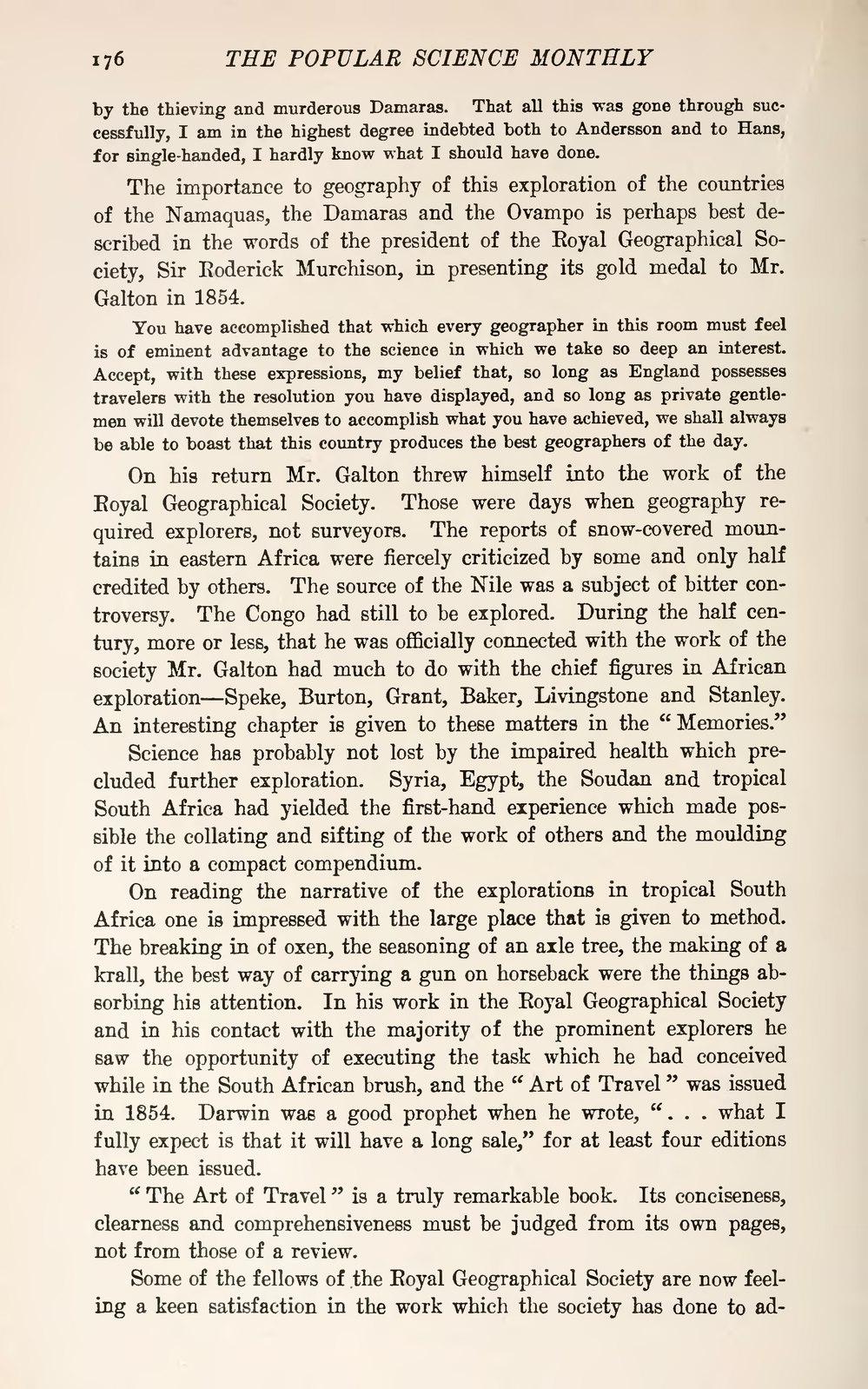The importance to geography of this exploration of the countries of the Namaquas, the Damaras and the Ovampo is perhaps best described in the words of the president of the Royal Geographical Society, Sir Roderick Murchison, in presenting its gold medal to Mr. Gallon in 1854.
You have accomplished that which every geographer in this room must feel is of eminent advantage to the science in which we take so deep an interest. Accept, with these expressions, my belief that, so long as England possesses travelers with the resolution you have displayed, and so long as private gentlemen will devote themselves to accomplish what you have achieved, we shall always be able to boast that this country produces the best geographers of the day.
On his return Mr. Galton threw himself into the work of the Royal Geographical Society. Those were days when geography required explorers, not surveyors. The reports of snow-covered mountains in eastern Africa were fiercely criticized by some and only half credited by others. The source of the Nile was a subject of bitter controversy. The Congo had still to be explored. During the half century, more or less, that he was officially connected with the work of the society Mr. Galton had much to do with the chief figures in African exploration—Speke, Burton, Grant, Baker, Livingstone and Stanley. An interesting chapter is given to these matters in the "Memories."
Science has probably not lost by the impaired health which precluded further exploration. Syria, Egypt, the Soudan and tropical South Africa had yielded the first-hand experience which made possible the collating and sifting of the work of others and the moulding of it into a compact compendium.
On reading the narrative of the explorations in tropical South Africa one is impressed with the large place that is given to method. The breaking in of oxen, the seasoning of an axle tree, the making of a krall, the best way of carrying a gun on horseback were the things absorbing his attention. In his work in the Royal Geographical Society and in his contact with the majority of the prominent explorers he saw the opportunity of executing the task which he had conceived while in the South African brush, and the "Art of Travel" was issued in 1854. Darwin was a good prophet when he wrote, ". . . what I fully expect is that it will have a long sale," for at least four editions have been issued.
"The Art of Travel" is a truly remarkable book. Its conciseness, clearness and comprehensiveness must be judged from its own pages, not from those of a review.
Some of the fellows of the Royal Geographical Society are now feeling a keen satisfaction in the work which the society has done to ad-
